When it comes to my hair, I'm not very good at listening to reason. I used to fry, chop, and color my hair at the drop of a hat, and I ended up with a frizzy, mangled mess!
That's because fads and trends in hair care don't always line up with what's actually good for your locks.
For instance, they say that blondes have more fun, but when it's from the bottle, they also have more brittle breakage and weird yellow shades.
And if you think coloring your hair is bad, don't even get us started on perming.
A perm, short for "permanent," is any process that changes the natural shape and texture of your hair.
Naturally, they've been wildly popular at times (notably, the 1980s) for their ability to give hair more volume and oomph.
Unfortunately, permed hair might look good in the short term, but in the long term, it's opening you up to a world of hair-care hurt!
Scroll through to learn more.
Photo Credit: Wikimedia Commons / Flickr
Risk #1: Snapping Strands
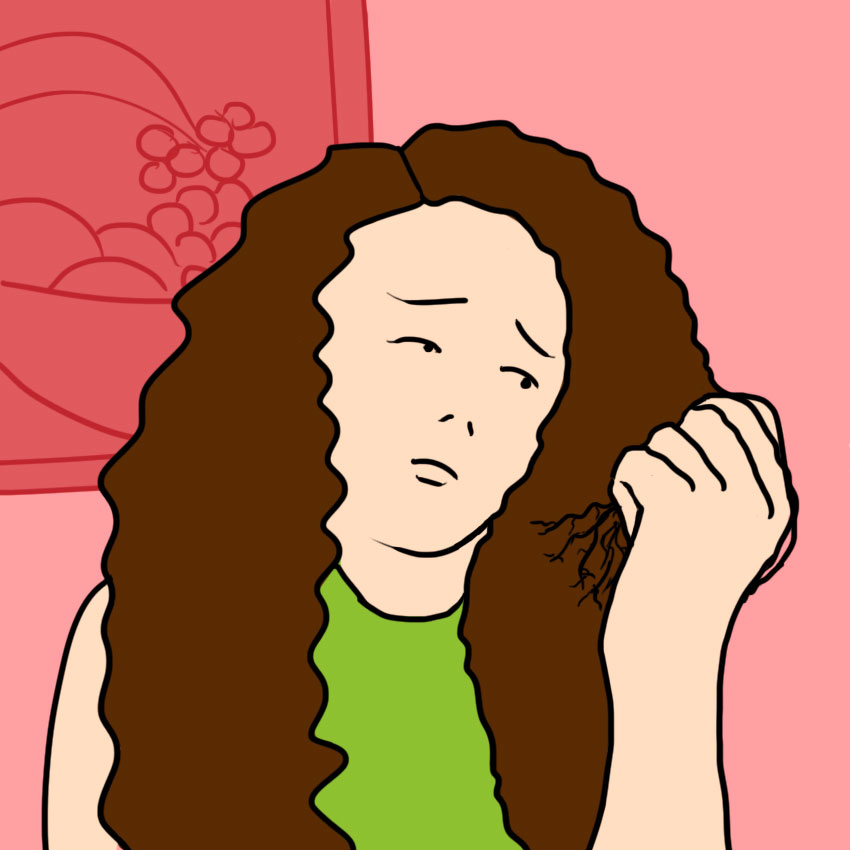
When you get a perm, your hair is usually treated with lots and lots of heat and chemicals.
That combination can leach the natural moisture right out of your hair and leave it brittle.
Even worse, you may find in the days and weeks after a perm that, if your run a hand or a comb through your hair, large sections simply break off right then and there.
Risk #2: Balding Patches

Balding is one of the most embarrassing and unsightly side effects that comes with burning.
Depending on how many perms you've had and how long the treatment takes, you may start to experience patchiness, especially along your hairline and part.
Balding usually happens when you've permed your hair for a long time, and it just isn't growing fast enough anymore to replace the breakage and thinning from the chemicals.
Risk #3: Scalp Infection
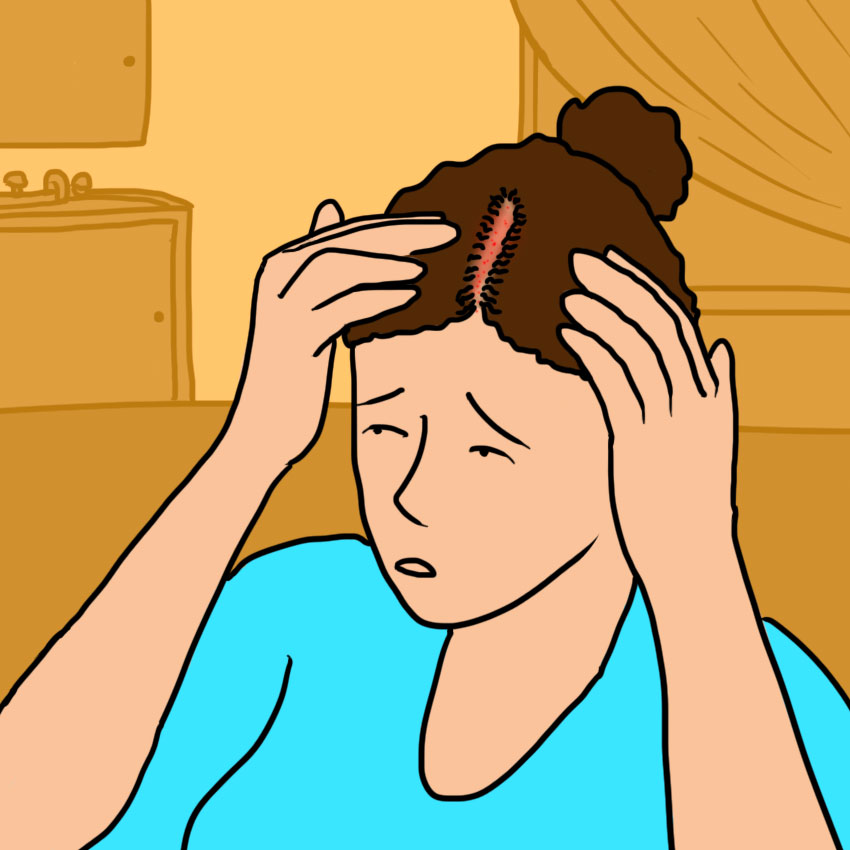
The process of perming your hair can leave the follicles in your scalp open and vulnerable.
As with any skin vulnerability, this means that you're particularly open to infection right after a perm.
This can lead to folliculitis, a painful and itchy infection of the scalp that resembles pimples, which can spread and become more severe.
Risk #4: Fibroid Tumors
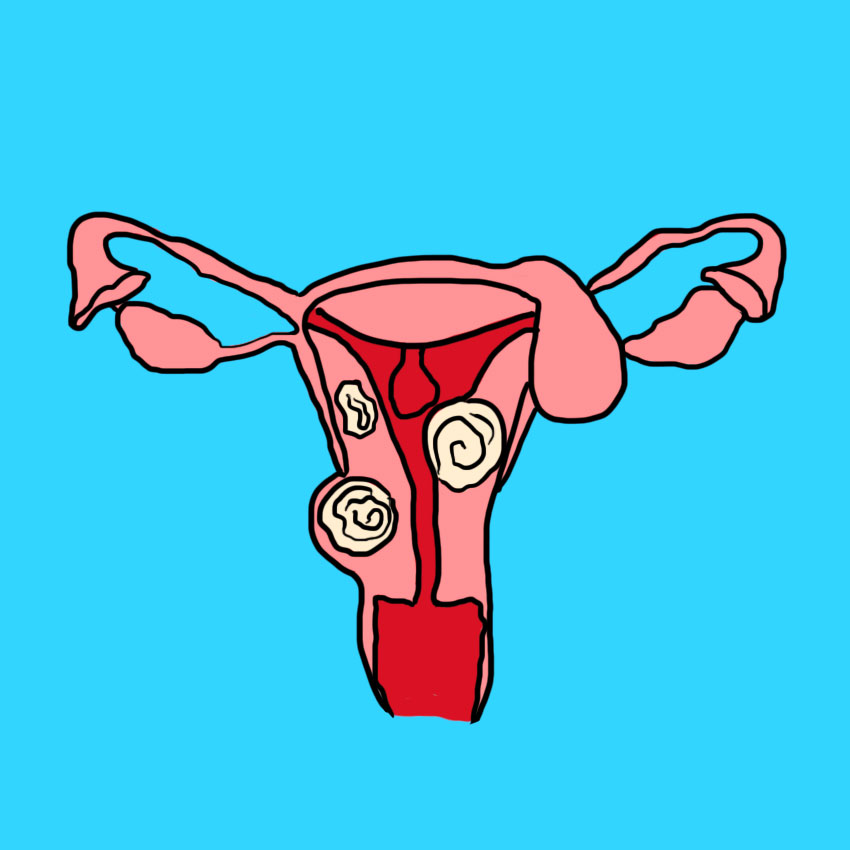
There is some limited evidence that perming your hair (in conjunction with using other hair products) may raise your risk of developing uterine fibroids.
Fibroids are dense, often painful tumors that develop on the uterus and ovaries.
The main study at the heart of this claim focused on women of color and was inconclusive, but more research must be done to learn whether fibroids are par for the course with perms.
Risk #5: Split Ends
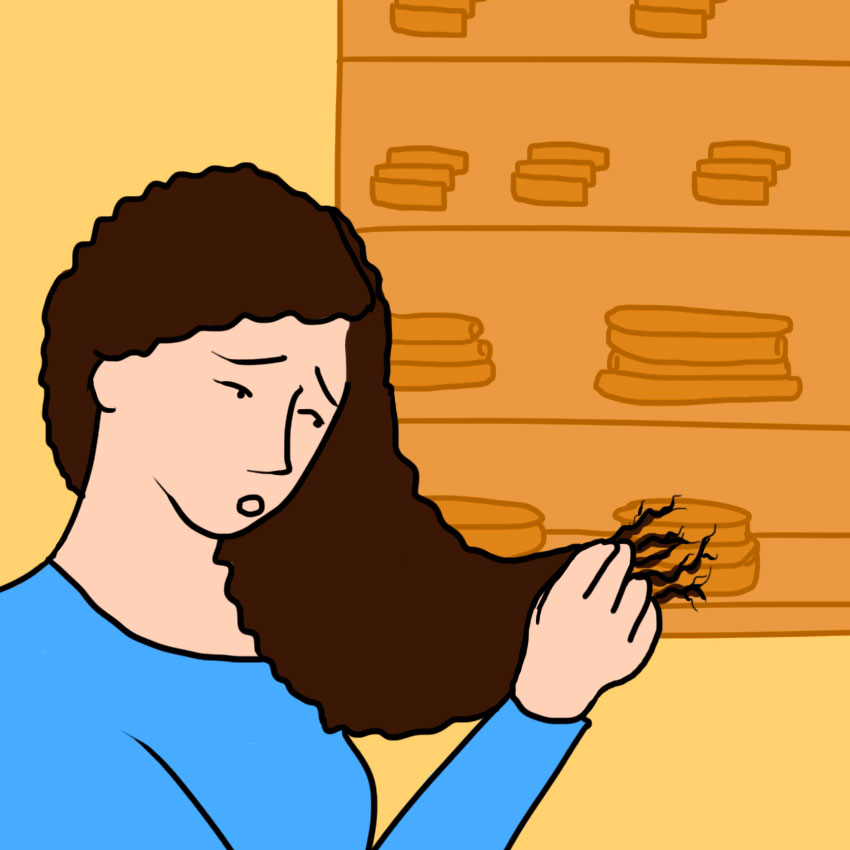
Perm processing usually affects the root of the hair first, since that's where the most pressure is exerted, and where the hair is most vulnerable.
Still, over time, any damage to the root or shaft of your hair eventually makes it's way down to the ends as your hair grows out.
Then, you end up with frizzy weakened splits in your hair called "split ends."
Risk #6: Burns On Your Scalp And Ears
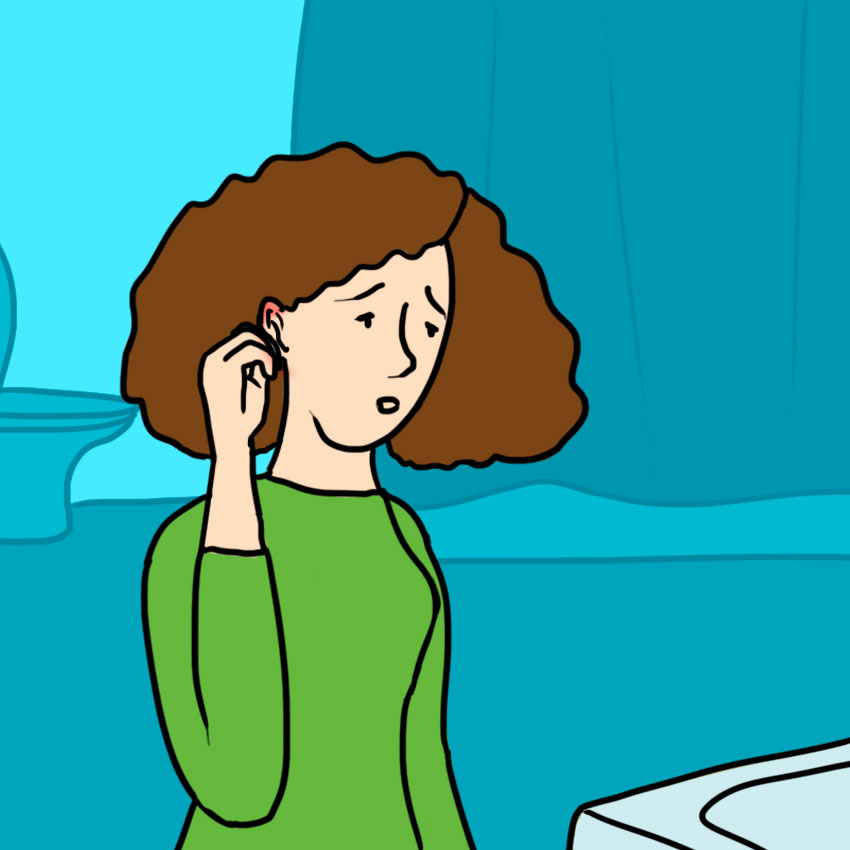
There are a lot of complex chemicals involved in perming, including a particularly acrid one called ammonium thioglycolate.
This particular chemical, like all forms of ammonium, is harsh, especially on delicate skin.
Your scalp is made of fairly tough stuff, but if improperly diluted or left on too long, this treatment can lead to chemical burns on your scalp and the tops of your ears.
Risk #7: Frizzy Fly-Aways
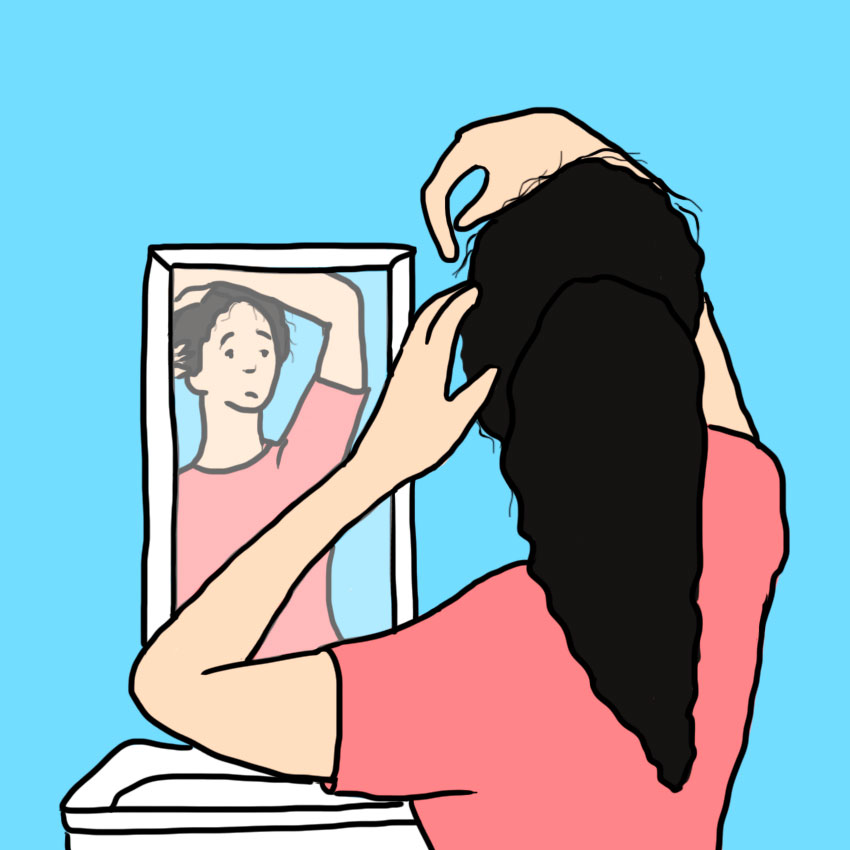
Once you have curly hair from getting your hair permed, fly-aways and frizziness become your ultimate enemies.
A certain number of fly-aways is natural, but if your hair is starting to seem like it's more frizz than anything else, it could be because your hair is breaking and thinning from the chemicals, and bouncing upwards into a fuzzy mess.
It could also indicate that those split ends we mentioned early are creeping up your strands and causing more and more weakness and damage as they go.
Risk #8: Unbalanced Hormones
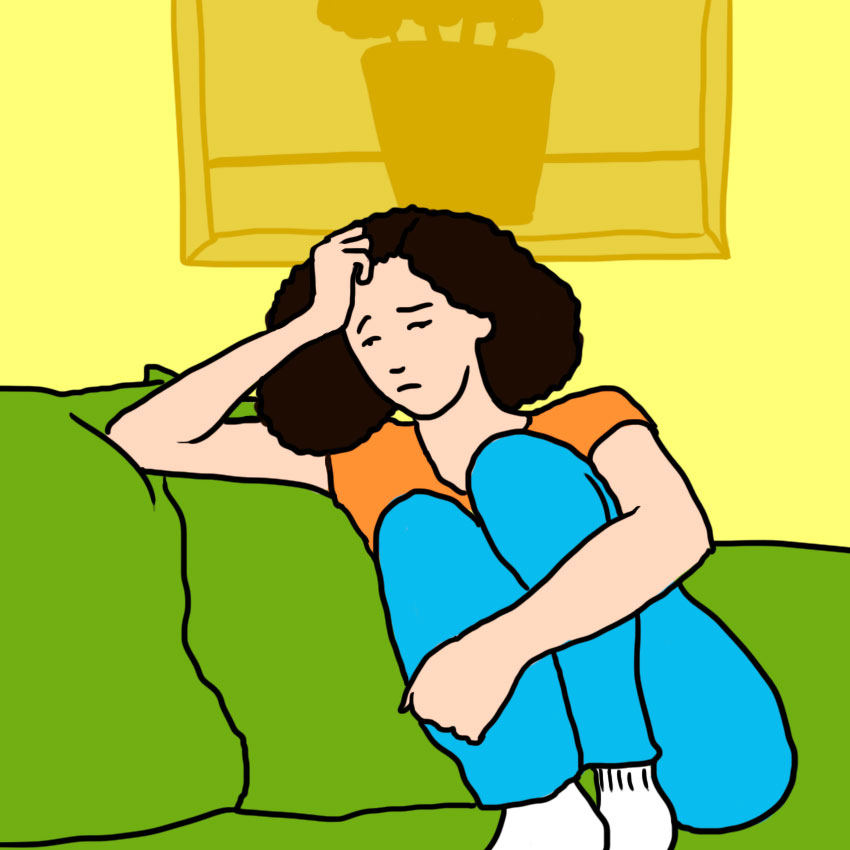
The link between perming and hormones still isn't clear, and more study needs to be done.
Still, what we do know is that perming is prohibited during pregnancy because it may cause birth defects.
We also know that perms don't "take" as well during pregnancy and menopause. Even without further study, it's not too much of a stretch to conclude that perms and hormonal shifts don't always mesh well.
Have you ever permed your hair? Let us know below, and SHARE with the other ladies in your life.




